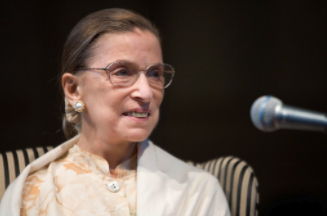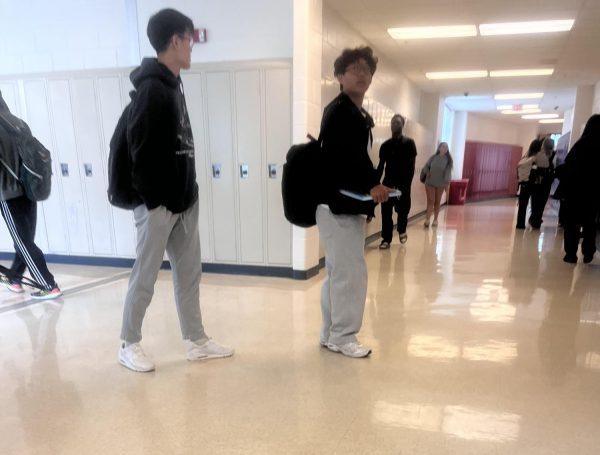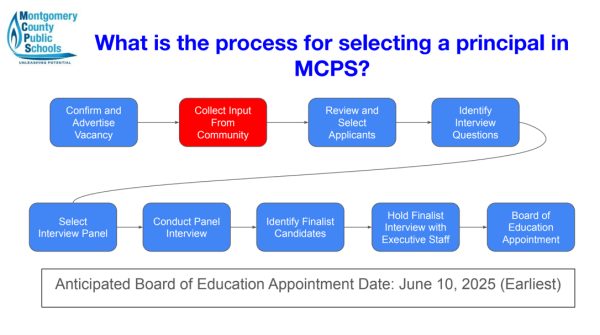Students react to RBG’s death, effect on country

Photo used with permission from Google Commons.
The late Justice Ruth Bader Ginsburg speaks in 2005.
Who was RBG?: Her life and accomplishments
Ruth Bader Ginsburg was the second female justice ever appointed to the U.S. Supreme Court. She served from August 1993 up until her death this September at the age of 87. During her life, RBG broke down gender equality barriers and made it possible for women to do what was never possible before.
In her 30s and 40s, Ginsburg taught at Rutgers University Law School and then at Columbia University, where she graduated at the top of her class, and became its first female tenured professor.
During the 1970s, Ginsburg became director of the Women’s Rights Project of the American Civil Liberties Union, and in 1980, she was appointed to the U.S. Court of Appeals for D.C..
Ginsburg spent her time in that court and on the Supreme Court fighting and giving opinions on cases for gender equality, one of the most famous being Reed v. Reed (1971), which was a landmark decision of the US Supreme Court ruling that the administrators of estates cannot be named in a way that discriminates between sexes.
Her death and its impact
RBG’s death this September was a shock to the US for a number of reasons.
Firstly, it has a huge effect on the courts. Ginsburg’s death opened up a seat in the Supreme Court, and while her dying wish was for officials to wait until after the election to appoint a new justice, the Trump administration is already trying to appoint Amy Coney Barrett to take her place before the election. That means that a very liberal justice could soon be replaced with a very conservative one. This puts a number of citizens’ rights at risk, including abortion rights, election rights, and Obamacare.
Student reactions
Students recall the moment they found out Justice Ginsburg had passed as feeling sad about her death, and worried for the future. “I was talking to a friend over the phone when I got a notification from NBC. My heart just sank. It wasn’t a surprise, as she’s been dealing with cancer for a while now, but it was still really disappointing news. It wasn’t until a couple hours after I got the news that I began to realize the implications of her death,” junior Katie Kerns said.
Sophomore Lindsey Walter agrees, and said she is worried that she will be directly affected by the news. “I was doing homework/scrolling through Instagram when I saw, I immediately looked it up to see if it was real and then was kind of in shock. I panicked knowing that if Trump was going to get to appoint a new justice I and so many others would be screwed over,” Walter said.
Sophomore Nina Kotval said she wishes Ginsburg didn’t have to worry about what her death would mean for the country. “I was on a FaceTime call when my friend texted me telling me the news. Honestly, I didn’t know much about her. I was sad and definitely surprised, but my reaction was more just like ‘Oh god what’s Trump gonna do’, and then later on I felt so bad that she had to pass feeling bad about it, because I know she wanted to stick it out for the rest of Trump’s term. Nobody should have to spend their last moments thinking about the effect it will have on millions of people. She deserved to have a break from her work, and not have to worry about the fate of the country, so she could pass in peace,” Kotval said.
Kerns and Walter were both familiar with Ginsburg’s work at the time of her death and said that she was a role model. “I was pretty familiar with most things RBG has done for women, and very familiar with how she has voted on court cases. I’ve always liked politics and she has been a huge role model,” Kerns said.
Walter agreed. “I was pretty familiar [with RBG’s work], I knew how much she helped break down the barriers of sexism and how she was a huge supporter of minority/LGBTQ+ rights,” Walter said.
Other students were less familiar with her, but Kotval said that this was a wake up call that made her learn more about what Ginsburg had accomplished. “I wasn’t that familiar with what she had done when she was alive, as unfortunately it takes someone dying to finally take a look at what they’ve done for you. I had been wanting to learn more about her, but I kept putting it off. Then she died, and it gave me the push to find out more about her,” Kotval said.
All three students agreed that they were scared for the future since a seat is now open in the Supreme Court. “Although I have never been one to promote mass panic, I fear for my reproductive rights. I feel strongly that Obamacare is in jeopardy. Although it takes a lot of time for court cases to reach the Supreme Court, I still fear that Roe v. Wade is at risk. I’m not fundamentally worried about Citizens United. I am generally concerned for the rights of women and queer people everywhere, as more conservative judges will lead to more conservative decisions,” Kerns said.
Kotval says that the government shouldn’t be able to take away reproductive and election rights if Barrett is appointed, because they shouldn’t be treated as privileges. “I just really, really hope that the Senate doesn’t confirm Barrett, because that’s just going to ruin so many lives. I just don’t understand how people can say they’re pro-life when after life is born they don’t care about it. I think it’s telling that these are rights. Nobody says ‘abortion privileges’ or ‘election privileges’ because in our society things like healthcare, abortion, and voting are RIGHTS. Everyone should be able to access them, but putting Amy in would take away people’s basic human rights,” Kotval said.
Your donation will support the student journalists of Thomas S. Wootton High School. Your contribution will allow us to purchase equipment and cover our annual website hosting costs.
Senior Isaac Muffett is the opinions editor in his fourth year on the Common Sense staff. When he's not writing or researching, he spends his free time...






